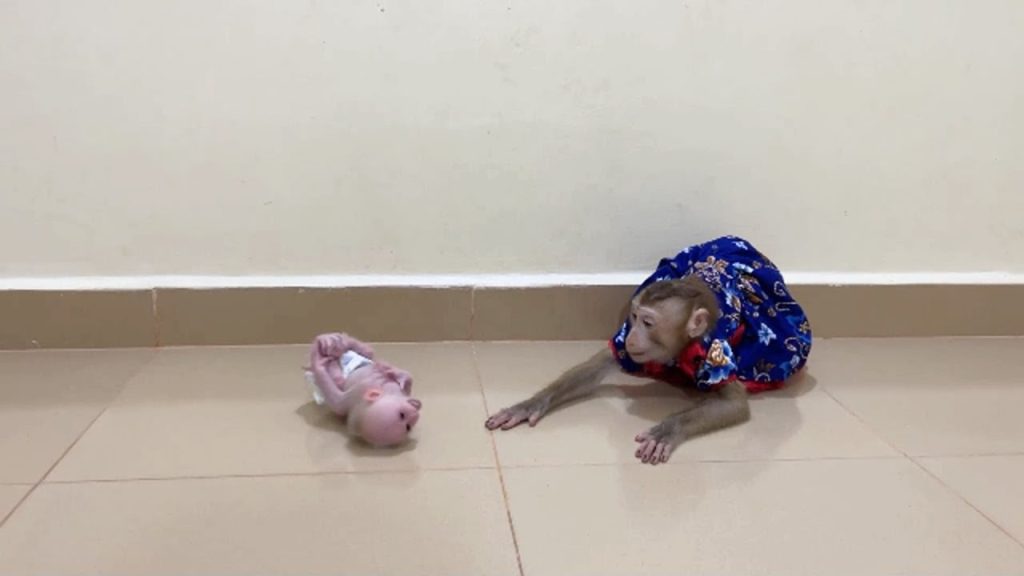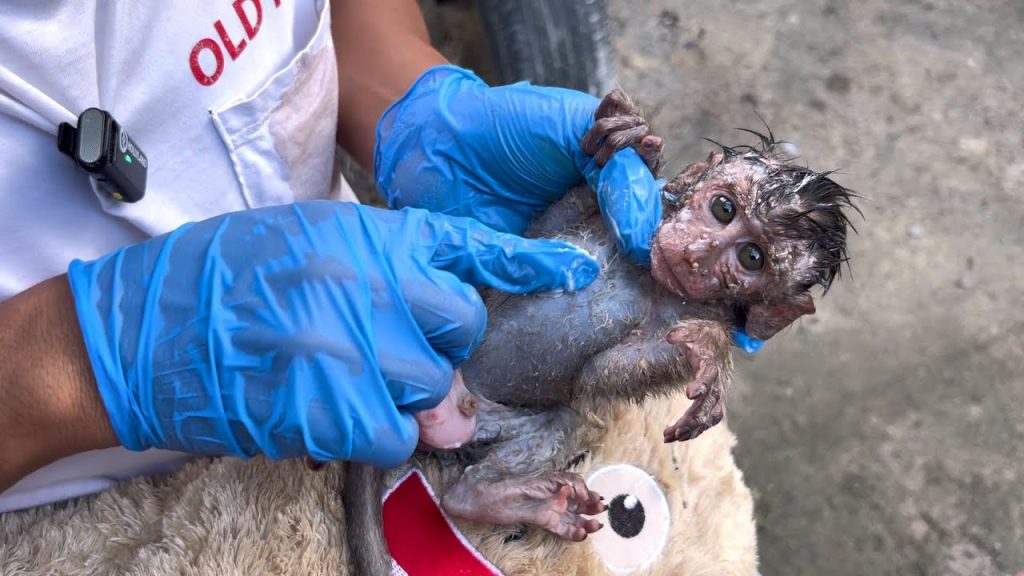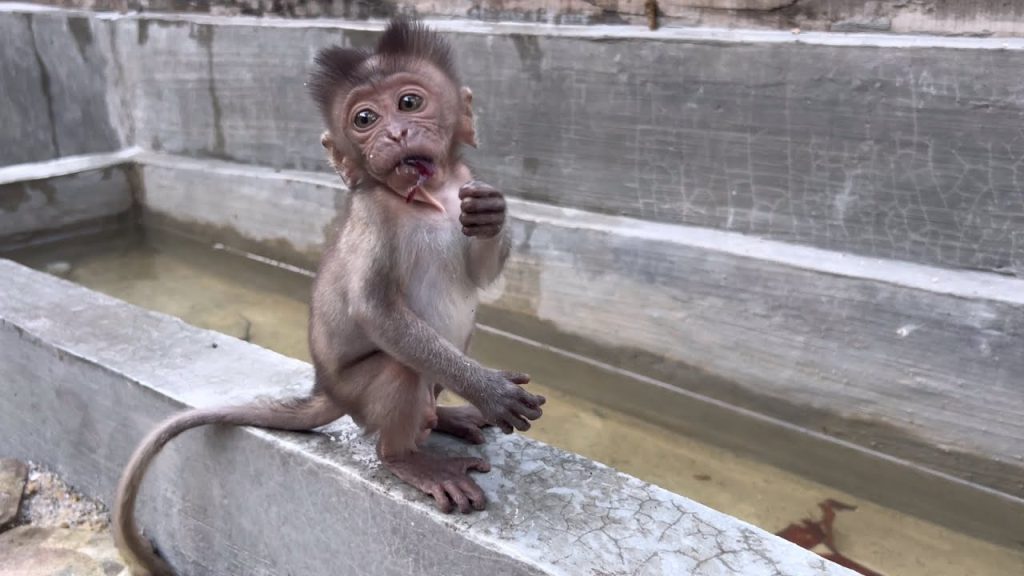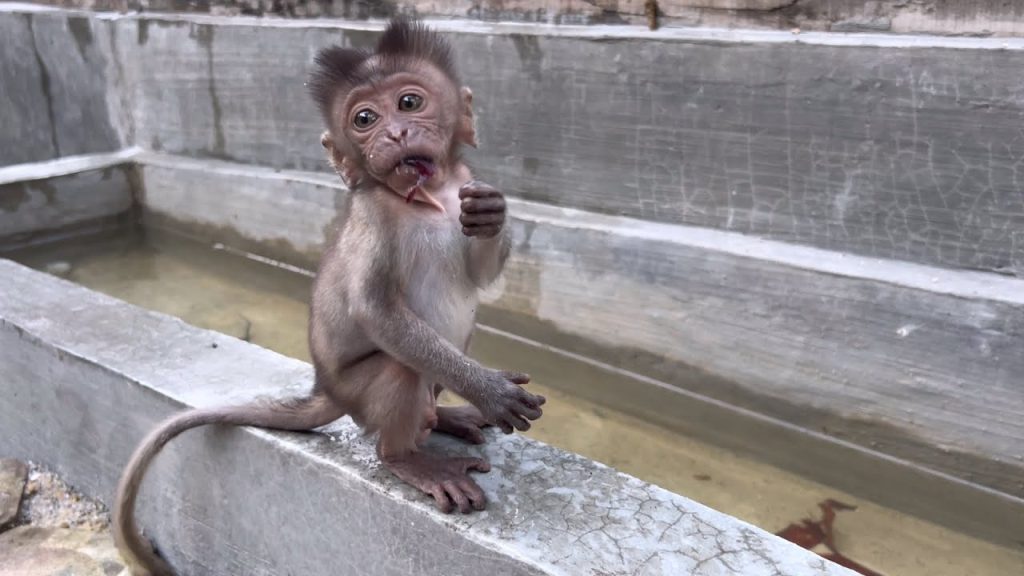
When Chichi collapses onto the floor in heartbreak, while Jenny continues her nasty rough play without empathy, we are not seeing a simple childish meltdown — we are witnessing the exact moment when emotional injury becomes physical posture. In tiny primates, sadness does not stay inside the mind. It enters the muscles. The shoulders droop, the legs fold, the body lowers to the ground as if gravity suddenly doubled its weight. That behavior — lying on the floor in emotional pain — is actually a social message. Even before she can speak, Chichi’s body is shouting: “I feel betrayed.” And this form of heartbreak is triggered not by danger, but by relational injustice — Jenny chose aggression instead of gentle interaction. For a baby monkey, that moment feels like their world has tilted unfairly.
Jenny’s nasty play is part of the problem, but it is also part of her own internal confusion. Young monkeys often do not know how much force is “too much.” Their motor circuits are still learning. Sometimes they push to dominate. Sometimes they push simply because excitement overloads their control. But the victim — in this case Chichi — does not interpret it as harmless exploration. She feels targeted. She feels devalued. And her collapse into the floor expresses the psychological truth: she believes she lost her social worth in that moment.
This is exactly why caregiver intervention must be structured, not emotional. If the adult side simply yells, the nervous system of both babies becomes even more chaotic. The correct approach is three-layered:
First, physically separate but gently — allow Chichi to feel safe again. A small space away from Jenny, even for thirty seconds, can stabilize her sense of identity.
Second, comfort Chichi without over-rewarding the collapse. Gentle vocal tone, small light touch, soft reassurance — this signals “you matter,” but does not transform heartbreak into a manipulation tool.
Third, reshape Jenny’s reward system. She must learn clearly that roughness removes privilege. Calm behavior restores access. All training of young primates is based on one ancient mechanism: association. If good behavior always pays better than cruelty, the brain will choose gentleness again next time.
Over repeated cycles, Chichi will slowly regain confidence, and Jenny will begin to understand that power is not proven by hurting someone weaker. Eventually, these small emotional collisions become the seeds that teach both youngsters the deepest social rule: belonging survives only when safety is shared — not stolen.


